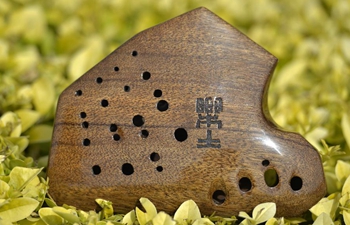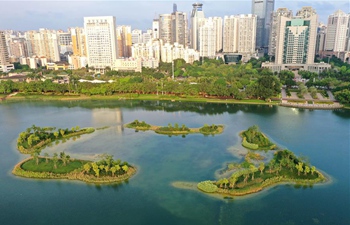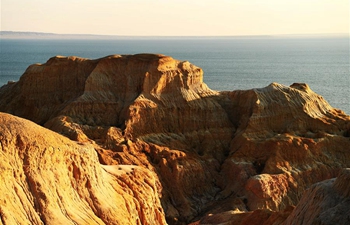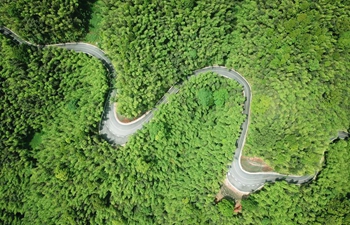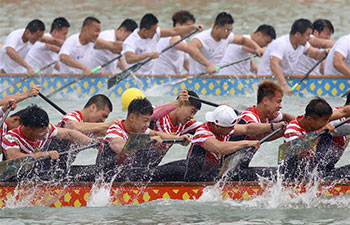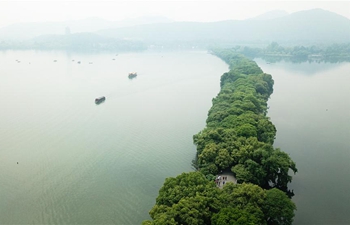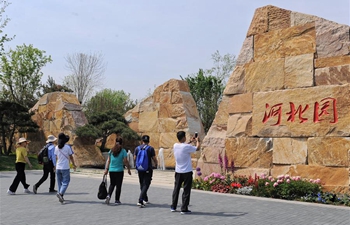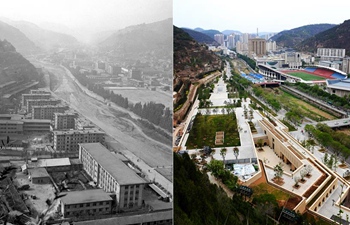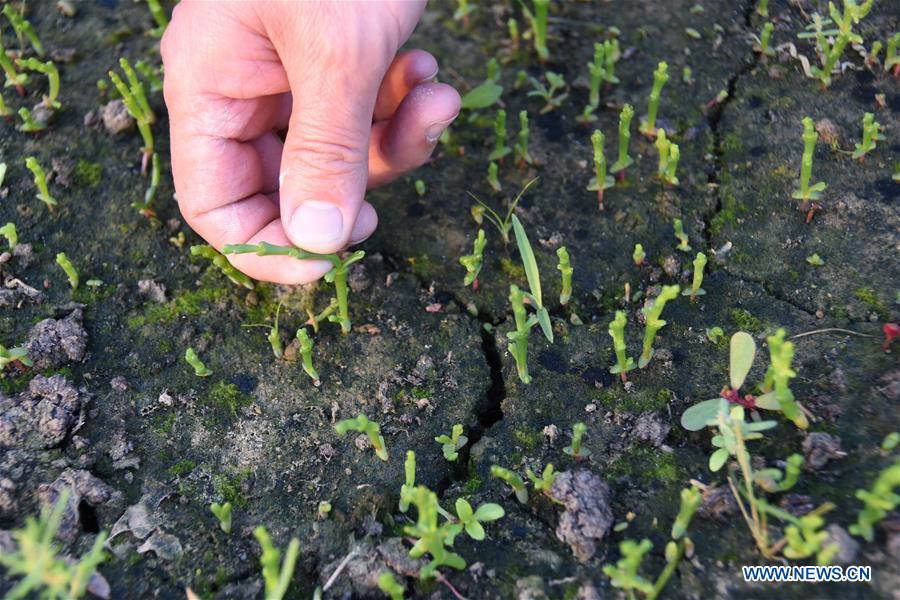 ?
?A farmer checks cultivated sea asparagus, a genus of succulent halophyte plants that originally grow in salt marshes or saline-alkali soils, at a greenhouse in Yangkou Town of Shouguang City, east China's Shandong Province, Nov. 24, 2016. China has about 100 million hectares of saline-alkali soil, of which about one fifth could be ameliorated to arable soil. (Xinhua/Zhang Zhilong)
CHANGSHA, May 16 (Xinhua) -- A leading saline soil rice research center in eastern China's Shandong Province made the decision to expand its experimental land to over 667 hectares early this month.
The Saline-Alkali Tolerant Rice Research and Development Center in the coastal city of Qingdao said the move aims to speed up research and development and optimize various types of saline soil rice.
The center said one other important purpose of the expansion is to seek the best cultivation methods.
"All strains of rice to be grown on the experimental land passed regional experiments in different types of saline soil," said Zhang Guodong, deputy director of the center.
Zhang noted that regional experiments were conducted in Xinjiang, Bohai Gulf in eastern China, northeastern China and coastal areas in southeastern China.
"We were surprised by parts of the experimental data last year. And this year, we are not only expanding the test area but also making stricter test parameters in order to better simulate actual production," Zhang added.
The center has set a target of 300 kg yield per mu (one mu is equivalent to 667 square meters). Meanwhile, researchers will study which rice types are suitable for which areas and which saline-alkali land needs to be ameliorated.
Rice is a staple food in China, as well as many other Asian countries.
China has about 100 million hectares of saline-alkali soil, of which about one fifth could be ameliorated to arable soil.
"This is not a small amount. We want to ameliorate 6.7 million hectares of saline-alkali soil at first, and then expand the area gradually. But the task cannot be done by any single institution; we need to work together," Zhang said.
To scientifically exploit and use saline soil, increase the grain output of China, as well as prevent disasters of saltwater intrusion into paddy fields at home and abroad, organizations and institutions have now strengthened cooperation.
"From the experimental field to farmers' land, there need to be repeated experiments at different stages," said Li Xinqi, a saline soil rice expert.
Li said the regional experiment is one of the key links of the whole production process, which could lay the foundation for the strains of saline soil rice.
So far, multiple organizations and institutions, including the research center in Qingdao, Hybrid Rice Research Center in central China's Hunan Province, Guangdong Academy of Agricultural Sciences and China National Rice Research Institute, have jointly established a National Salt-Tolerant Rice Regional Trail Alliance in May 2017.
The alliance then set standards for the regional experiments of saline soil rice and lead the experiments. The organization is currently discussing saline soil rice's production standards.
"The establishment of the alliance facilitates the research and development of saline soil rice in China," said Peng Jiming, an official with the research center in Hunan, adding that the alliance also helped to attract over 20 enterprises and scientific research institutions to join the research and development of saline soil rice.
Experts said it is necessary to establish an authoritative organization to work out standards, collect the latest trends of saline soil rice studies and solve problems.
Chinese tech giant Huawei has also participated in the development of the saline soil rice. It has worked with the research center in Qingdao to develop a saline soil rice intelligent agricultural system based on technologies of the Internet of Things and big data.
The system is expected to make headway in the fourth quarter of this year.
The research and development of saline soil rice in China have drawn international attention. The Republic of Congo, Pakistan, India and Nigeria have expressed strong interest, while China will soon build up saline-alkali tolerant rice research and promotion centers in the Middle East and Africa.
Yuan Longping, known as the "father of hybrid rice," also urged the establishment of a national research and development center on saline-alkali tolerant rice and to make use of more saline-alkali land to increase rice yield.




